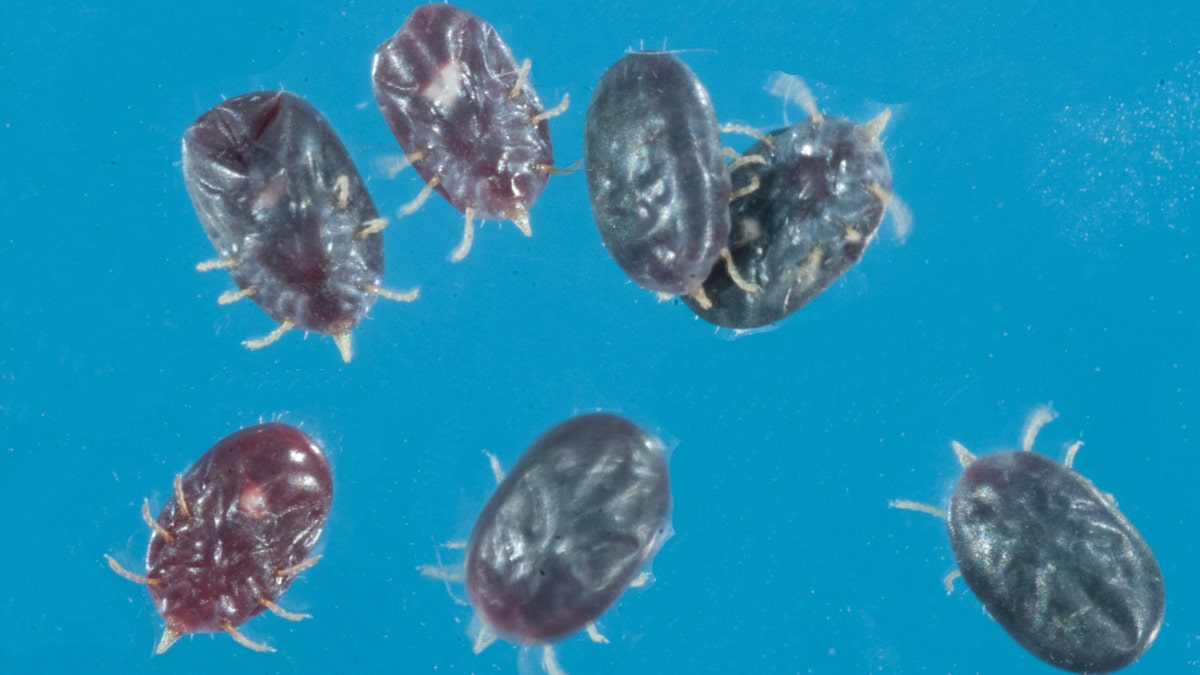Fox News Flash top headlines for September 10
Fox News Flash top headlines are here. Check out what's clicking on Foxnews.com.
A tick species associated with bats was recorded in New Jersey for the first time, researchers say, and humans, pets and livestock could be at risk of infection.
Findings from the Rutgers University-led study were published on Wednesday in the Journal of Medical Entomology.
The species, Carios kelleyi, is known as a “soft tick” given its soft, leathery body, as opposed to “hard ticks” such as deer ticks, which can carry Lyme disease, per a university news release.

Live larval bat ticks (Carios kelleyi) taken from big brown bats in 2019 in Mercer County, New Jersey. (Photo: J. Occi/Rutgers Center for Vector Biology)
This species of bat parasites are known to exist in 29 states, and “in other states, C. kelleyi has been found infected with microbes that are harmful to people, pets and livestock," per the release.
“All ticks feed on blood and may transmit pathogens (disease-causing microbes) during feeding,” James Occi, lead author and doctoral student in the Rutgers Center for Vector Biology at Rutgers University-New Brunswick, said in a news release.
“We need to be aware that if you remove bats from your belfry, attic or elsewhere indoors, ticks that fed on those bats may stay behind and come looking for a new source of blood. There are records of C. kelleyi biting humans,” Occi said.
NEW TICK AND MOSQUITO REPELLENT WILL HELP PROTECT HUMANS AND PETS, CDC SAYS
Researchers say the species was confirmed through larvae collected from big brown bats.
“Finding them on New Jersey bats was an unusual event that prompted bat specialists to contact us. Maybe these ticks are becoming more common,” said Dina M. Fonseca, senior author and professor, and director of the Center for Vector Biology in the school's Department of Entomology.
Scientists with New Jersey’s Division of Fish and Wildlife located the tick larvae on bats last year, and Occi says the next step involves collecting more specimens and testing them for disease-causing microbes.
Click here for health guidance on ticks from the Centers for Disease Control and Prevention (CDC).

